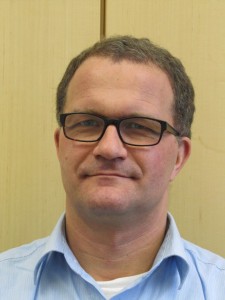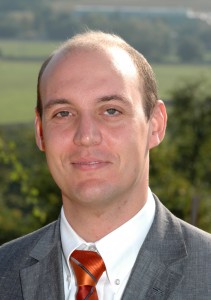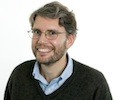Advisory Board
The Advisory Board forms the link between the partnership, politics and multipliers. It aims at integrating the projects´ findings into discussions at European level.
The Advisory Board accompanies the project partnership and gives advice to the project during its lifetime. It is furthermore asked to provide critical feed-back related to intermediate project results.
The Advisory Board expressed the following mission statements for its work:
- Enhance and support the integration of different project parts and participants
- Provide assistance on the scientific and implementation oriented direction of the project based on Advisory Board members key expertise
- Provide information sources and ideas for additional external cooperation
- Peer review of the project reports and evaluate the project results on a regular basis
The following persons are members of the Advisory Board:
(in alphabetic order)

Dr. sc nat Christa S. McArdell
Read CV
Christa S. McArdell studied chemistry at the Swiss Federal Institute of Technology (ETH) Zurich and received her PhD 1994. After a post-doctoral study at the Johns Hopkins University in Baltimore, USA, she joined Eawag, the Swiss Federal Institute of Aquatic Science & Technology, in Duebendorf, Switzerland in 1996.
Christa S. McArdell has guided several studies on the occurrence and fate of micropollutants in natural and technical systems. Mass flows are performed from the usage of emerging organic contaminants from urban settlements, mainly focusing on pharmaceuticals, to their behavior during wastewater treatment and to their discharge into ambient water and infiltration into groundwater. A focus is on the wastewater treatment processes and strategies for removal of organic micropollutants in conventional and advanced treatment as well as decentralized treatment. C. McArdell was/is partner within several national and international projects (e.g. EU projects POSEIDON, RECLAIM WATER, NEPTUNE, DEMEAU, InterReg IVB project PILLS) and active member of COST Action 636 “Xenobiotics in the Urban Cycle” and TD0803 “Detecting evolutionary hot spots of antibiotic resistances in Europe (DARE)”.
Mr Dr Peter T Robbins
Read CV
Peter is Reader in the Sociology of Science, Technology & Development at The Open University (OU) in the UK, and Director of the Innogen Institute at the OU. His research interests are in life science innovation, science & technology politics and engineering approaches to water and sanitation, on which he has a number of publications and grants. He is the co-editor of Exploring Central & Eastern Europe’s Biotechnology Landscape (Springer, 2011), author of Greening the Corporation (Earthscan, 2001), and is an Associate Editor of the Journal of International Development. His previously worked as a sociologist with a team of engineers and scientists at the Institute of Water & Environment, Cranfield University, where he was involved in a number of interdisciplinary European and UK projects researching water resources and agricultural issues in both Europe and the Global South.

Mr Dr rer nat Thomas Steger-Hartmann
Read CV
Dr. rer. nat. Thomas Steger-Hartmann (VP) is Head of Investigational Toxicology at Bayer Healthcare, Germany. His department comprises more than fifty scientists and technicians at two sites and is responsible for both early and mechanistic safety assessment of pharmaceuticals as well as environmental risk assessment. Dr. Steger-Hartmann has more than 17 years of experience in the field of preclinical and ecotoxicological assessment of pharmaceuticals and early drug development, particularly in the field of contrast agents, hormonal compounds and oncology indications. Dr. Steger-Hartmann is a Eurotox registered toxicologist.
Dr. Steger-Hartmann is involved in several international research collaborations in the field of (eco)toxicology and was Member of the Scientific Advisory Board of the PILLS project. He is currently deputy leader of the European Innovative Medicines Initiative (IMI) project “eTox”, a European collaboration for gathering in vivo drug toxicity data for the development of improved in silico prediction tools.

Mr PhD Luc Zwank
Read CV
Luc Zwank is deputy director of the luxembourgish Water Management Agency. He is also a member within several international expert groups dealing with the technical and political aspects of the implementation of the Water Framework Directive. As former head of the laboratory he participated also in Working Group Chemical Aspects within the Common Implementation Strategy of the WFD, the Committee of the Drinking Water Directive (EU) and the chemical monitoring group (International Commission for the protection of the River Rhine).
As former Unit Manager of the Water Unit at CRP Henri Tudor, he was closely involved in the definition of the PILLS project and headed several research projects dealing with organic micropollutants in the (urban) water cycle.
Luc Zwank holds a diploma in environmental sciences from ETH Zurich (2000). After a six month research stay in the group of Prof. Philip M. Gschwend at the Massachusetts Institute of Technology, he joined EAWAG for his PhD thesis in environmental chemistry (2000 - 2004). After a first working experience in an engineering office, he joined CRP Henri Tudor where he worked as Unit Manager `Water´. In October 2009, he joined the Water Management Agency.







